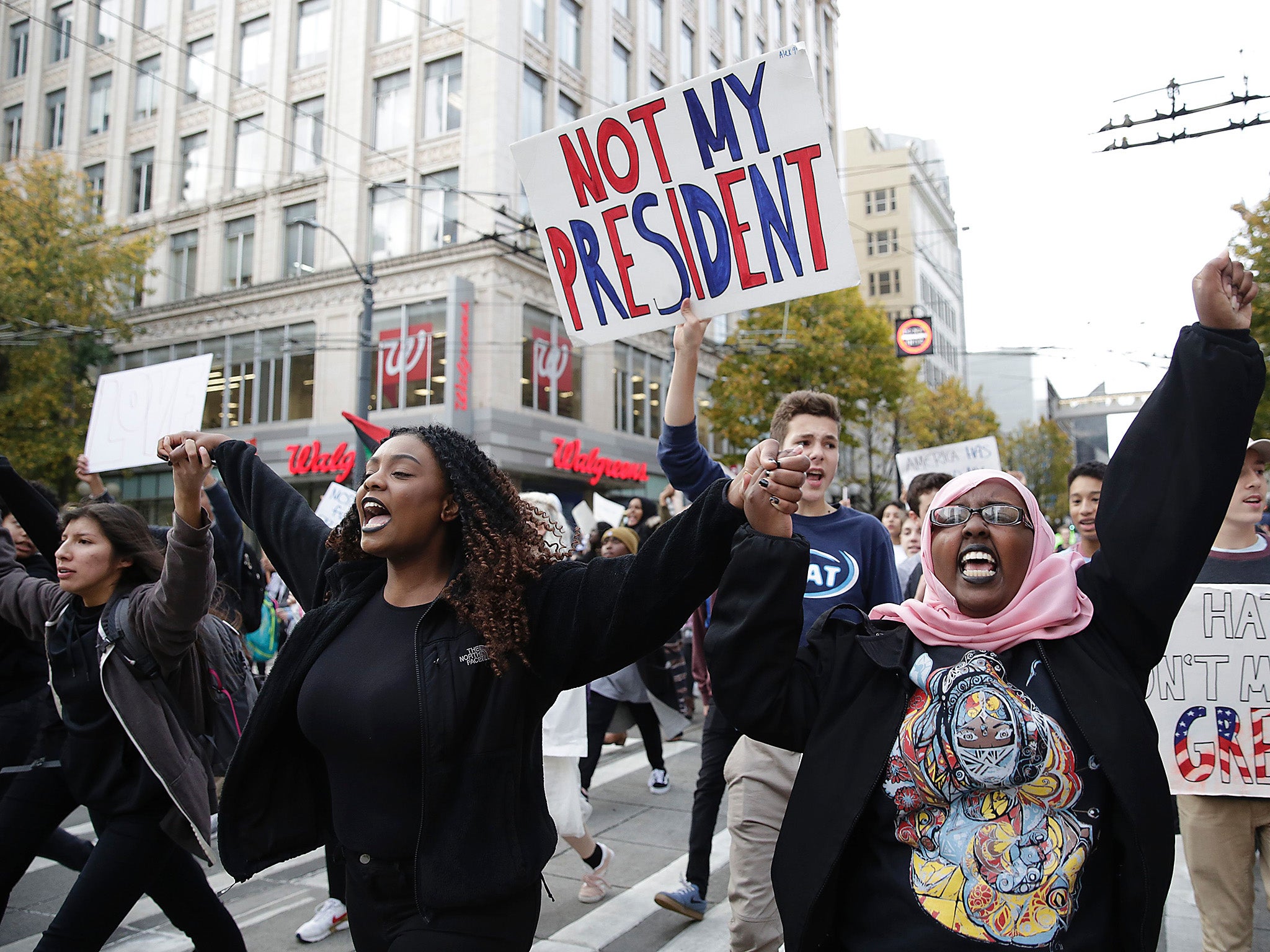COP22: Who is left to save the world if America pulls out of Paris Agreement?
Barack Obama was one of the climate’s greatest champions, but Trump will not follow in his footsteps. Could China or Europe step in and take advantage?

The dust still hasn’t settled here in Marrakech from Donald Trump’s shock US election victory, but attention at the UN climate summit is starting to turn towards how the rest of the world might soldier on without American leadership.
Barack Obama can claim a great deal of credit for bringing the world together in support of the Paris Agreement to limit climate change at last year’s summit, and “Team America” has led from the front in climate action for 20 years.
But the US President-elect has threatened to cancel the Paris accord, scrap all American contributions to UN climate programmes and denounced the very concept of man-made climate change as a Chinese hoax.
One theme emerging from the COP22 summit is the idea that shifting to a greener planet is not a matter of sinking money into an endless budget for “aid”, but a business opportunity.
And if Mr Trump can’t be convinced of that, there is no shortage of other world powers willing to step into America’s shoes.
The gloom in the wake of the Trump victory has focused on the US’s role as the world’s second-greatest polluter, responsible for 13 per cent of global emissions.
But Chinese representatives here point out the “gigantic size” of its own emissions – Chinese real estate alone accounts for 8 per cent of global emissions, similar to the total emissions of the EU.
One part of China’s plan involves phasing out steel and cement emissions by 2050 – a scheme which, on its own, would cut as much pollution as the entire emissions of the UK (twice over).
Riffing on Mr Trump’s own claims to deal with what he sees as the problem of Mexico, a representative of one Chinese NGO joked that China would be willing to cut the equivalent of all US emissions – “particularly if President-elect Trump gets his way” – adding that “we would get the US to pay for it”.
China sees the scope for international infrastructure projects and efficiency savings that climate action entails – and when it comes to reaping the benefits, the joke is on the US.
Europe is also eyeing up the opportunities here, and the chance to look for a partner to the east instead of the west, particularly on a subnational level.
At a side event organised by the China-Europe Forum, delegates discussed how the landscape of global climate action is shifting, and where the impetus for making a change now falls.
Michel Lebrun, the former president of the European Committee of the Regions and the man representing the EU at the China-Europe event, said it was up to local actors to step into the breach as Trump’s election highlighted the hazards of relying on heads of state for answers.
“Local governments, business and civil society play a key role in the adaptation and mitigation process [of fighting climate change],” he said.
The suggestion is that the major cities and regions of Europe – as the cradle of Western civilisation – can lead the way to a kind of climate enlightenment.
“During this COP22 in particular we are called to defend and support a fast-tracked implementation of the Paris Agreement,” Mr LeBrun said. “This is only possible if we establish a strong ecologically committed civilisation.”
Others feel that it will fall to the world’s biggest businesses to pave the way on climate action, driven by both the dispassionate economic arguments behind green innovation and strong leadership that does not rely on public opinion for its authority.
Dr Nathaniel Keohane, vice president of the Environmental Defence Fund (EDF), named Walmart as an example of a huge company making voluntary, positive steps in this field thanks largely to the “personal interest” of its CEO, Carl Douglas McMillon.
But not everyone believes there is a simple solution to the question of who will take over from the US if Mr Trump takes his country out of the global movement to stop climate change.
In his keynote speech at the summit on Wednesday, Secretary of State John Kerry said the “overwhelming majority” of Americans know that climate change is happening, and that if the world fails to act it would be a “moral failure, a betrayal of devastating consequences”.
Avipsa Mahapatra, from the Environmental Investigation Agency (EIA) campaign group, says that is “one of the messages we can take away [from the Trump victory]… that it is not about any single country.”
“Given there is very little time left if we want to stand a chance of staying below 2C [of warming] – and there is really no point in talking about 1.5C at this point – it has to be about all stakeholders, all citizens, all countries giving it all their efforts, plus some more.”
Join our commenting forum
Join thought-provoking conversations, follow other Independent readers and see their replies
Comments
Bookmark popover
Removed from bookmarks